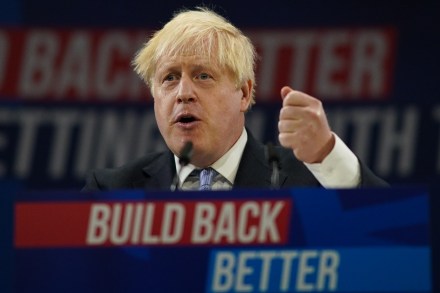What was the point of Boris’s speech?
17 min listen
Marking the end of the conference, Boris Johnson gave what James Forsyth describes as ‘the most Boris speech possible’. The Prime Minister set out his ambition for ‘radical and optimistic conservativism’ and won over the crowd with his characteristic jokes. The Conservatives are in a strong position, but was the speech enough to retain support across the country amid a fuel crisis and labour shortages? And was the lack of concrete policies a problem? Isabel Hardman speaks to Katy Balls and James Forsyth.




















